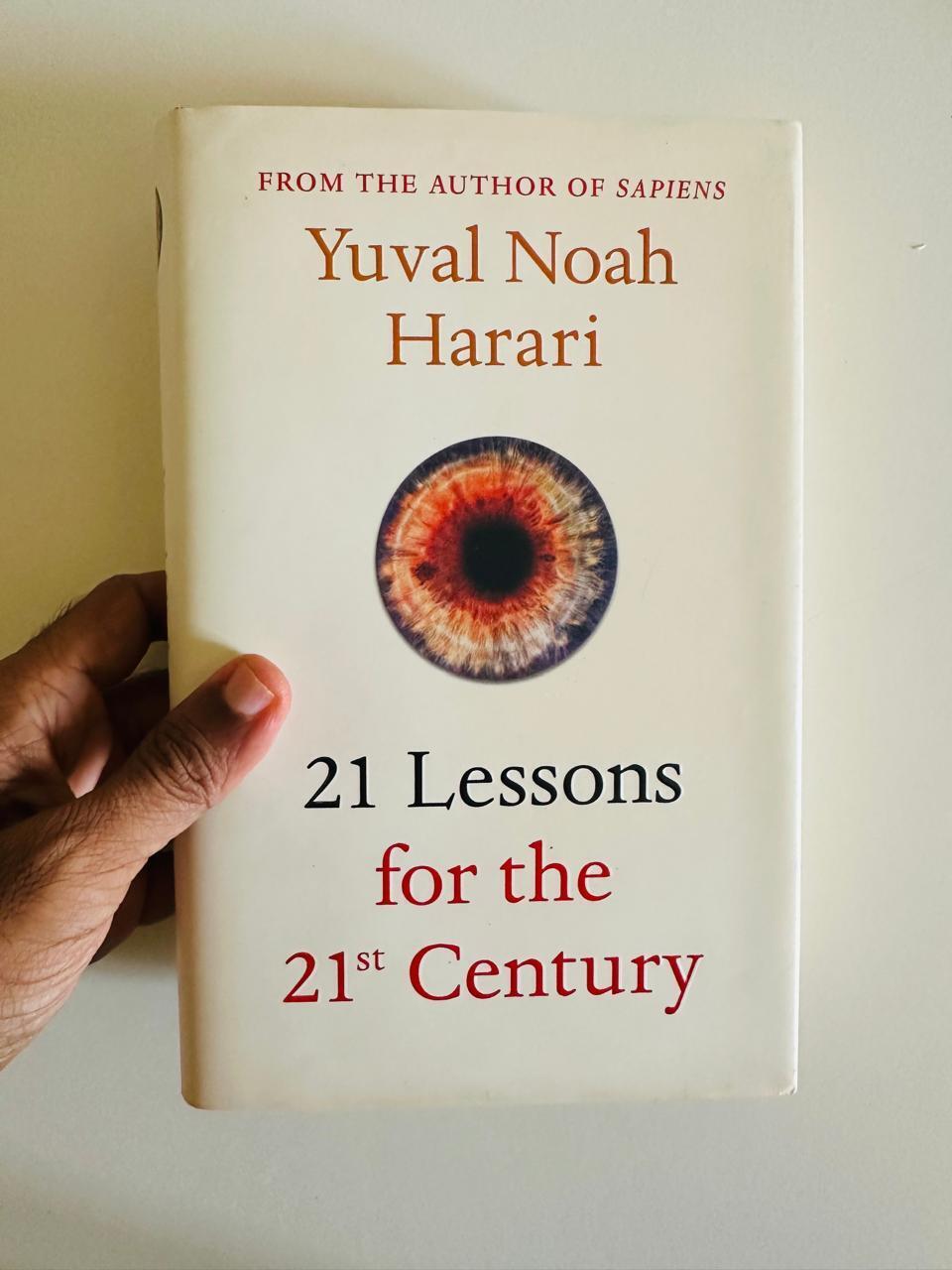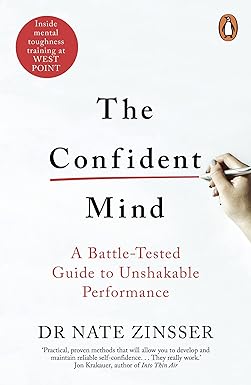
HomeThe Confident Mind By Dr. Nate ZinsserBook SummaryThe Confident Mind By Dr. Nate Zinsser
The Confident Mind By Dr. Nate Zinsser
March 18, 2024
The Confident Mind By Dr. Nate Zinsser

- Binod Shankar
- Book Summary
My Top 20 takeaways:
- Confidence is a sense of certainty about your ability, which allows you to bypass conscious thought and execute unconsciously.
- Success in any field—be it sports, the arts, business, science, and certainly the military—requires both confidence AND competence.
- It doesn’t matter how much “failure” you’ve experienced if you decide to respond to it constructively.
- Most of us were “socialized” by well-meaning teachers, coaches, and other authority figures who encouraged us to find our place in the world and comfortably fit in rather than build the self-confidence that would help us stand out.
- We are essentially cave dwellers and we still have a brain and a nervous system with a very highly developed sense of what could go WRONG. That’s why we all experience fight or flight response episodes. It’s not a threat to our existence. But because it’s something important, our primitive biology has us looking over our shoulder a lot because our ancestors lived a very uncertain life. So, we still have to deal with these very basic aspects of being human despite the fact that we can shoot with missiles instead of bows and arrows.
- Everything else can be taken from you, but this power to choose what you think, what you remember, and what you believe about yourself is untouchable.
- When the fear of making a mistake is in your mind, you become cautious instead of assertive, reserved instead of intense, overly analytic instead of natural and flowing.
- Confidence is situational meaning you can be confident in one area and not another. You also have to keep working on it- its not something you get once and then keep intact forever.
- Accept what you cannot change. You develop inner calmness by accepting 4 things:
- Humans are imperfect. Be curious about your imperfections. What are these telling you about you?
- Mind and body are connected. Conscious thoughts (I will fuck up) affect unconscious emotions (worry and frustration) affects physical state (muscle tension, stress chemicals) affects performance
- The actions of the autonomic nervous system. Its perfectly normal to feel nervous as this is the body getting you ready for action- stronger, faster, more preceptive, more alert.
- The delayed returns of practice
- Let’s start with building confidence based on your Past. Your mind maintains a “bank account” of memories for the sport, craft, or profession you want to excel in. There are 3 ways of building your confidence bank account:
- Think back of the top 10 best moments in your chosen field hat you experienced. Those are powerful memories.
- The balance grows when you make E.S.P. deposits. E.S.Ps are Energizing and encouraging memories of quality effort, Success, or Progress. When your account is loaded with E.S.Ps, you feel confident. But when your account balance is low, you experience self‐doubt. Luckily, every day we have an opportunity to make E.S.P. deposits into your account and become “rich” with confidence.
- Take the best moment out of a series of events and use that to build confidence.
- Then we look at the present. There are 3 ways to build confidence from the present:
- Write down Self-affirmations.
- Think of the key skills you have. Write them thrice before going to bed
- Repeat the self affirmations each time you pass under a doorway.
- Next, we look at your future. Make the envisioning as vivid as possible. Feel the texture, hear the sounds, feel the temperature, taste and smell the air. Picture all this leading up to the competition, during and after.
- As you approach a performance you need the right pre‐performance routine. The simple three‐step pre‐performance routine called C-B-A:
- Cue your conviction: Come up with a phrase that helps you to fall in love with your performance butterflies and convert nervous energy into pure excitement.
- Breathe your body: Work your breathing muscles by pushing down and into your belly as you inhale, and then up and in through your rib cage as you exhale.
- Attach your attention: Pick something inside your performance to be deeply curious about – like the movement of a tennis ball as your opponent tosses it in the air before serving to you.
- There are physical techniques, too: keeping your shoulders slightly back and eyes straight ahead will improve your posture, while focusing on breathing during a performance can be a powerful way to bring a feeling of control and yank you into the present moment.
- Next is how to protect your confidence. This borrows heavily on Martin Seligman concept (and book) on Learned Optimism:
- Think of every mistake as temporary
- Think of each mistake as limited to that place, time and situation
- Picture your setbacks as not representative of who you are.
- When bad things happen, tell yourself that it makes the next shot is now more likely to hit the target. That way, failure brings you closer to success.
- Confidence is cultivated during childhood – “how you were encouraged as a young person to think about yourself” – and a good example is King Richard, the recent biopic showing Richard Williams constantly telling his daughters Serena and Venus that they were destined to become the world’s best tennis players.
- A daily reflective exercise, where you look at where you worked hard, what little successes you had, what progress you seem to be making, can be absolutely paradigm busting because many of us have grown up being told to think about where you messed up every day.
- At the at the high school level there’s a big spread of talent. There’s a big spread of technical skill. You go to the college level that that spread narrows. You go to the Olympic level that spread is almost nonexistent. Everybody’s talented, everybody has put in a lot of work, everybody has a heck of a lot of success, everybody is technically and tactically skilled. The difference is who’s going to believe in herself the most? Who’s going to be most certain?
- It’s the decision to say: ‘I’ve done the work. I know what I know. I’m going to deliver now. I am enough.’




